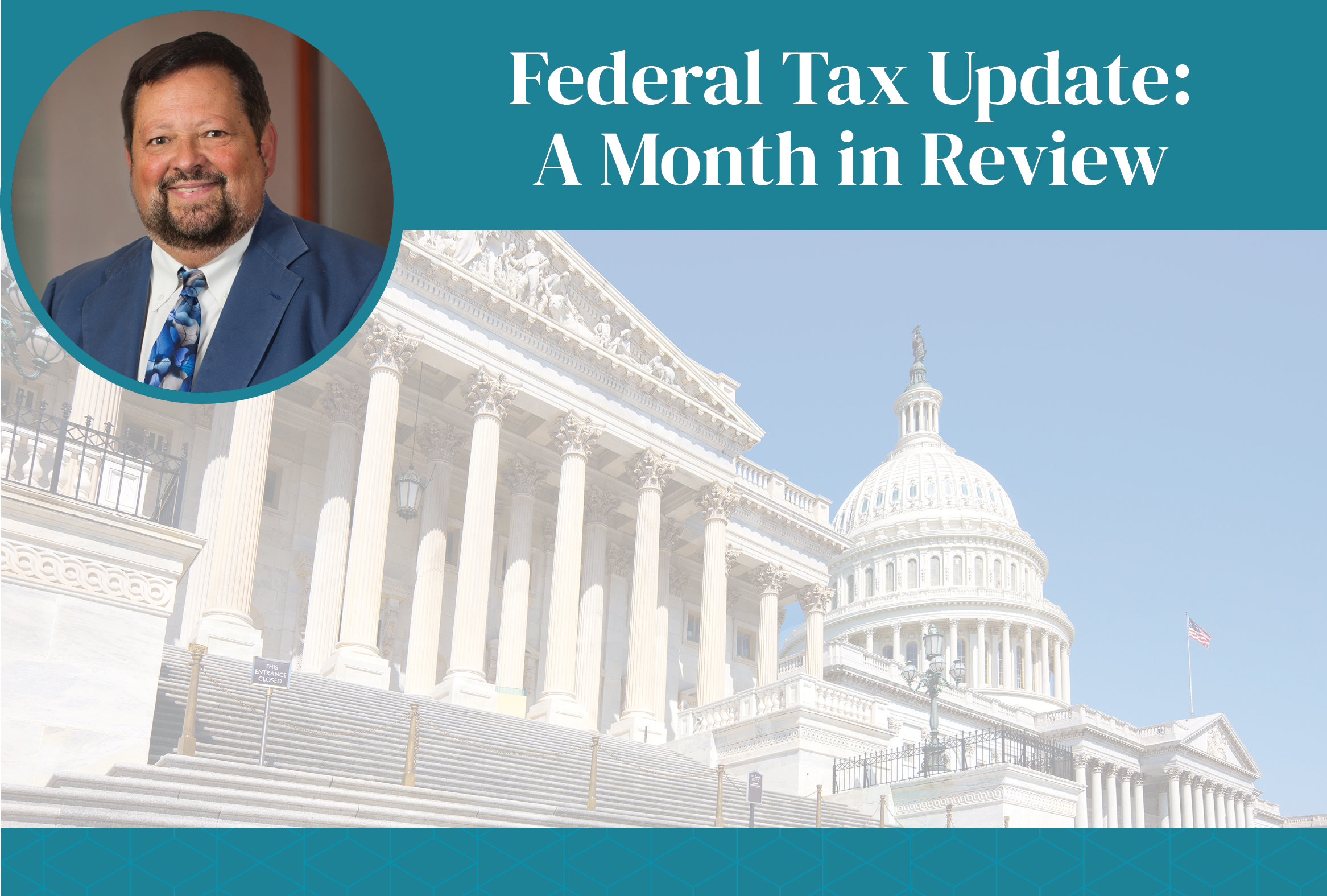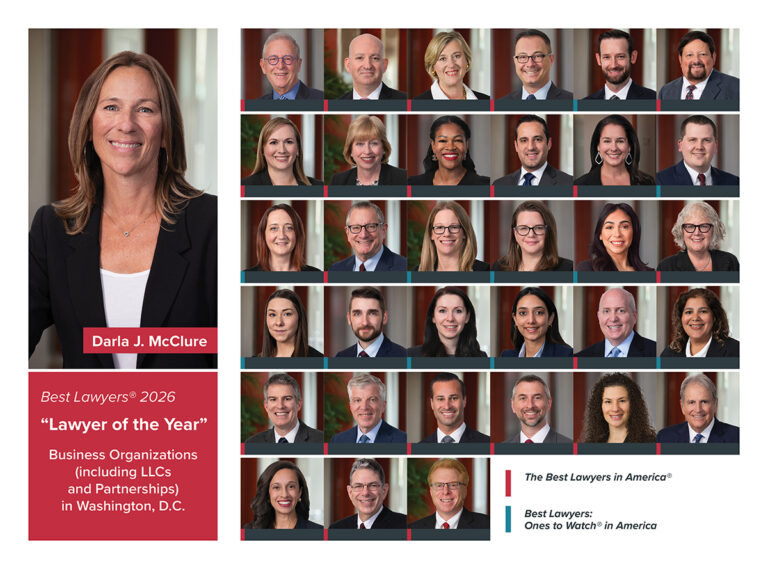June 1st, 2024
May Federal Tax Updates
Posted in: Tax Law Tagged: David S. De Jong

INDIVIDUALS
In Excelsior Aggregates LLC v. Commissioner, TC Memo 2024-60, in a decision applied to 13 cases, the Tax Court doubted the value of conservation easements restricting sand and gravel mining and reduced the deduction on the three factually litigated cases by an average of 88 percent.
In Banuelos v. Commissioner, TC Summary Opinion 2024-7, the Tax Court disallowed post-2017 employee business expenses in the case of a California administrative law judge who would have come under an exception to the general denial of employee business expenses inasmuch as he was a state or local employee; however, the exception only applies to employees paid in whole or in part on a “fee basis” and he was paid on an hourly basis which was found to be outside of the exception.
RETIREMENT AND ESTATE PLANNING
In Estate of Anenberg v. Commissioner, 162 TC No. 9, The Tax Court concluded that the termination of a QTIP Trust by court order after mutual agreement with the widow who subsequently made a gift of the distributed stock to her stepchildren and sold the remaining shares to her stepchildren and step grandchildren, while causing a reportable gift of a portion of the stock, was not a reportable gift as to the portion that was sold as there was no gratuitous transfer.
BUSINESS
In Continuing Life Communities Thousands Oaks LLC v. Commissioner, 134 AFTR2d 2024-_____ , the Ninth Circuit Court of Appeals agreed with the Tax Court that deferred entrance fees into a care facility are only taxed to an accrual basis tax payer when it has fulfilled its statutory and contractual obligations, the Court noting that, when a method of accounting clearly reflects income and complies with generally accepted accounting principles, IRS cannot shift the Taxpayer to an accounting method that “more clearly” reflects income.
In Parkway Gravel Inc v. Commissioner, TC Memo 2024 – 59, the Tax Court concluded that the division of proceeds between two related companies was legitimate based on business endeavors and risk assumptions where IRS had argued that the split proceeds was a sham transaction.
In Anderson v. Commissioner, 134 AFTR2d 2024-1551, the Tenth Circuit Court of Appeals agreed with the Tax Court that a geneticist convicted of sexual offenses and sentenced to 14 years in prison could not deduct $360,000 in legal fees; he claimed that a former colleague framed him in order to steal the intellectual property without cooperation.
In Meyer, Borgman & Johnson, Inc. v. Commissioner, 134 AFTR2d 2024-________, the Eighth Circuit Court of Appeals agreed with the Tax Court that an engineering firm creating structural designs for building projects was not entitled to the research tax credit because it was funded and payment was not at risk based on the results of the research.
In Worthington Holdings LLC v. Commissioner, 162 TC No. 10, the Tax Court threw out a TEFRA adjustment against a partner for 2016 where the LLC had elected, as was the law for 2016 and 2017, to come under the new BBA partnership procedures, declining to invoke equitable estoppel against the taxpayer.
In Schwarz v. Commissioner, TC Memo 2024-55, the Tax Court, in a 117 page opinion, determined that a dentist and his wife, owners of over 15,000 acres of land in South Texas, with gross income from farming including hunting/fishing on their lands averaging almost $1 million per year but with huge losses, was not engaged in a “for profit” activity but rather sought to offset an average of $2 million in earned income.
PROCEDURE
In Maderia v. Commissioner, TC Summary Opinion 2024-5, the Tax Court held that a taxpayer had reasonable cause for an understatement of income tax when an identical issue regarding constructive dividends was not subject to penalty based on the results of prior year examinations.
In United States v. Ohendalski, 134 AFTR2d 2024-1514, a Texas Federal District Court concluded that a couple had created a network of entities to hold personal assets which could be seized to satisfy tax liabilities.
In Holley v. Commissioner, TC Memo 2024-54, the Tax Court found that IRS did not abuse its discretion when it rejected collection alternatives in a CDP hearing in the case of an anesthesiologist who filed four times for bankruptcy but had at least $2.2 million in assets; the Revenue Officer described her as a “serial filer.”
In Strom v. Commissioner, TC Memo 2024-58, the Tax Court denied innocent spouse relief to a physician with an MBA degree on the failure to report approximately $105 million in income (from his wife’s exercise of nonqualified stock options) where the couple schemed to place the income into the following year, by which time the stock value had declined significantly; he had been involved in numerous planning meetings and failed to disclose his MBA or that he had any business knowledge on his innocent spouse application.
In Rawat v. Commissioner, TC Memo 2024-56, IRS denied innocent spouse status to a “well educated” nurse who had been convicted on two counts of being an accessory after the fact to her husband’s felony convictions, the Court finding that she lacked candor; the couple failed to report substantial relief from indebtedness income and retirement income as well as understated business profit.
In Jurries v. Commissioner, TC Summary Opinion 2024-6, The Tax Court granted innocent spouse relief following divorce as to liability attributable to the former spouse but rejected equitable relief as to his own share of liability where he turned a “blind eye” to the joint return prepared by his wife.






